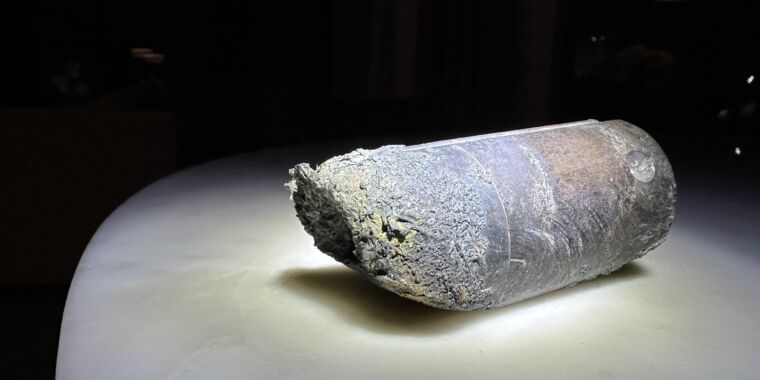Unexpected Encounter: Space Debris Crash in Florida Home
A peculiar incident took place in Naples, Florida, a few weeks ago when an object descended from the heavens and pierced through Alejandro Otero’s residence. NASA has initiated an investigation into this nearly two-pound object, strongly suspected to be debris from the International Space Station. Otero recounted how the object violently penetrated the roof and floors of his two-story home in Naples.
Incident Insights
Fortunately, Otero was away at the time, leaving his son as the sole witness to the event. Through a Nest home security camera, the exact moment of impact was recorded at 2:34 pm local time on March 8. Interestingly, this timestamp corresponded closely to the reentry time captured by the US Space Command at 2:29 pm EST on the same day as it transited over the Gulf of Mexico, en route to southwest Florida.
The object itself is suspected to be part of a payload containing depleted batteries from the ISS, connected to a cargo pallet. Originally designated for a controlled descent back to Earth, logistical delays impeded its return. Consequently, the batteries were detached from the space station in 2021 for an unguided reentry, culminating in this unexpected encounter with Otero’s residence.
NASA’s Response
Following the report by WINK News, NASA promptly retrieved the debris from Otero’s property under the supervision of agency spokesperson Josh Finch. Engineers at NASA’s Kennedy Space Center are poised to conduct a thorough analysis of the object to ascertain its origin, laying the groundwork for further revelations once the evaluation concludes.
Ars provided an initial report on the reentry event, highlighting how the majority of the material likely disintegrated upon reentry due to atmospheric friction. The immense heat generated during this phase typically leads to the vaporization of such space debris, preventing significant remnants from reaching the Earth’s surface.
Implications and Recourse
If the object is confirmed to belong to NASA, Otero and his insurance provider may seek compensation through the Federal Tort Claims Act. However, a new dimension emerges if the debris originates from a foreign entity, as explained by Michelle Hanlon from the University of Mississippi. In such a case, liability shifts to the launching country, necessitating reparations for the damages incurred.
Given that the batteries were under NASA’s ownership but attached to a pallet system launched by Japan’s space agency, the situation may involve international legal intricacies that could influence the resolution process.
As the investigation progresses, insights into the space debris incident in Naples promise to shed light on the complexities of space governance and liability frameworks in the realm of international space law.
Image/Photo credit: source url





